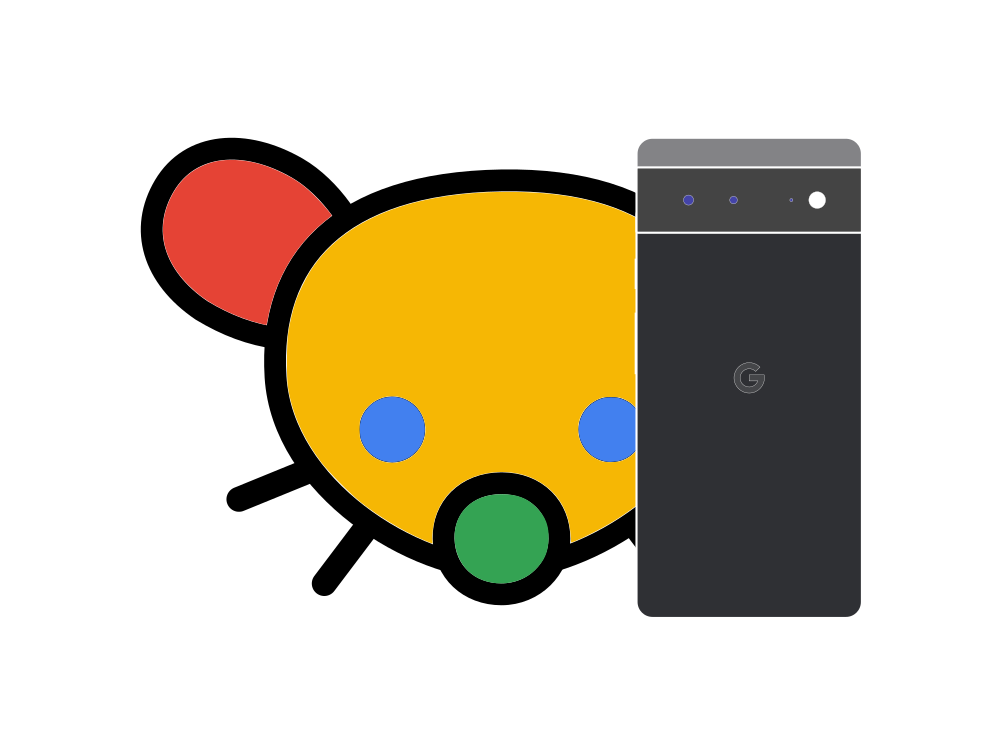

The M7 had that camera problem didn’t it?


The M7 had that camera problem didn’t it?


Nice! This would be great as long as it doesn’t come at the expense of battery life.


I checked my Pixel 6A direct from Google and I do have it. You have to tap “Show system apps” in the top right menu.


This is another one of those features that I’ll immediately find in settings and turn off when the update drops.


The three known instances of censorship collusion that happened at that time concern the Canadian authorities asking Facebook to “remove users’ posts for ‘disinformation about lifting a COVID restriction’,” RebelNews now writes.
All you need to know. Fuck off with the right wing rage bait.


I read the trilogy and the sequels. The sequels definitely aren’t as intricate and political as the trilogy. But if you like just getting lost in Asimov’s ideas and tropes they’re perfectly good books.


I’ve worked in the industry for the last 11 years, and my experience is that the industry has changed dramatically.
In 2012, there were still huge niches in smartphone software that has not yet been filled. There were also almost no barriers to entry - a team of <10 people rapidly expanding didn’t have to think about Cookie Banners or Google Play store delisting. Finally, there was the promise of a huge payout - the win condition for a startup was to BE the next Google.
In 2023, dominant players have captured all aspects of the software experience and when a new idea becomes popular (Snapchat in 2016 is a good early example), big tech has the lawyers and developers to simply clone it with a higher budget (e.g. Insta & FB Stories, Youtube Shorts). Because of scale, big companies can more easily afford to deal with regulation and can even sometimes regulate their competitors (Play Store). Finally, big tech is guaranteed high payout for developers - these days, the win condition for a startup isn’t to BE the next Google, its to be acquired by Google.
The eventual end of all this is Google continuing to strangle open & free Android by buying/shutting down any new ideas and extracting more and more rent from its platform.
The only way to opt out is to move to non-Play AOSP alternatives.


I would REALLY like to buy one of these. But I just can’t justify buying anything with a 60hz display in 2024.


Most roll under percentile systems like GURPs / Call of Cthulhu have the concept of difficulty.
In those two systems, the GM can call the check “regular”, “hard”, or “extreme”.
On a hard check, you must roll under 1/2 your skill. On an extreme check, you must roll under 1/5 your skill.
The face right behind the cat is terrifying


Stop voting against them then. The republicans you support would gut these laws first chance they get.


OP since you seem in the know - can you clarify the meaning of the Google post?
Is this saying that ALL Pixel phones for worldwide distribution will be made in India going forward? Or is it just saying that Google will make Pixels sold to the Indian market in India?


I really like that plating


My Bose QC35s have lasted 7 years so far, and don’t show any sign of problems. I use them heavily, wearing them 5+ hours a day typically.
I replace the earcups once every year for about $15, that’s it.


Awww yisss.


He’s so polite.


I’d love to buy this thing but the mediocre display is a dealbreaker. I hope they put out a premium version at some point.


Code is like a set of Lego pieces you put together to make an app or website. Usually, you have to go to Windows’ house to play with Windows Legos, and you can’t play with Windows Legos at iOS’s house. If you tried to put a Windows Lego on an iOS Lego, they wouldn’t fit. This means that if you want to make something with Legos, you have to do it in their house and play by their rules.
Website Legos are special. You can play with Website Legos at the public library, and any other kids who go to the library - a public place that’s always open to everyone - can play with Website Legos too. Even Windows and iOS can come to the library and play with Website Legos. No one gets to decide what Legos are allowed or who gets to play with them, and kids can build things together because their Legos fit together.
What Chrome is doing is bad because they want to take all the Website Legos back to their house, and force every kid in town to come to their house if they want to play with Legos. That way, Chrome gets to decide who is allowed inside, and can ban any Lego shapes they don’t like from their house.
We need to stop Chrome, because every kid deserves to play with Legos, and kids make much cooler things when they can all work together with a shared Lego set.
un chat.